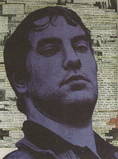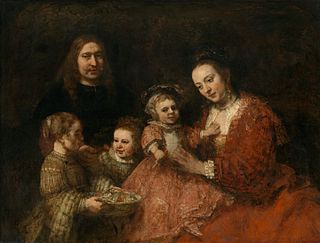

Kai Engelke (born 1 April 1946) is a German writer, music journalist, reciter, singer-songwriter and teacher.


Kai Engelke (born 1 April 1946) is a German writer, music journalist, reciter, singer-songwriter and teacher.
Kai Engelke is the son of journalist and author Jooschen Engelke (1918–1962) and painter Robin Mück-Engelke (1909–2000).
He was born in Göttingen, grew up in Hildesheim (Lower Saxony) as well as Berlin, and was also based on the North Frisian Island Föhr on the German coast of the North Sea. His formative years were marked by constant change as the family moved to different places in Germany. As a consequence, he was educated at a boarding school in Marburg, attended grammar school in Gießen, commenced his journalistic training with renowned German newswire dpa (Frankfurt/Main) and eventually graduated from Hildesheim University, majoring in educational science. Subsequently, he freelanced with Hildesheimer Presse, taz Bremen and pursued journalistic projects with radio stations such as NDR Hannover and Radio Bremen. Over his career, Engelke has contributed essays, commentaries, novels and poetry to more than 100 anthologies.
Between 1975 and 2011, Engelke worked as primary school teacher in Esterwegen/Emsland. From 1981 to 1988, he coordinated the Surwolder Literaturgespräche, a platform for painters, journalists, playwrights, authors and musicians to mix and mingle, attend workshops, perform and be merry. From 2001 to 2007 Engelke was the art director of Bremen-based Landesliteraturtage Niedersachsen/Bremen. Also, he has been active as art director as well as facilitator at the Meppener Krimitage (crime fiction event based in Meppen/Germany) since 2009. [1] He has been facilitating the International Liederfeste at Burg Waldeck since 2011, [2] contributed as jury-member and was in charge of the Liederbestenliste (high score list for world music and folk releases) as well as the Preis der deutschen Schallplattenkritik (acclaimed award for best German releases). As longstanding editor he contributed essays, reviews and commentaries for Germany-based folk and world music magazine Folker. [3]
Kai Engelke was a contributing member of the German Writers' Guild Verband Deutscher Schriftsteller (VS) between 1978 and 2014. Over and above of his membership with the Writer's Guild he also worked as executive member being in charge of matters in Lower Saxony. He has been a member of the Syndikat since 2005 – an association of German crime authors. [4]
Engelke is married to Ulrike Engelke and father of five children.

Lower Saxony is a German state in northwestern Germany. It is the second-largest state by land area, with 47,614 km2 (18,384 sq mi), and fourth-largest in population among the 16 Länder federated as the Federal Republic of Germany. In rural areas, Northern Low Saxon and Saterland Frisian are still spoken, albeit in declining numbers.

The Weser is a river of Lower Saxony in north-west Germany. It begins at Hannoversch Münden through the confluence of the Werra and Fulda. It passes through the Hanseatic city of Bremen. Its mouth is 50 km (31 mi) further north against the ports of Bremerhaven and Nordenham. The latter is on the Butjadingen Peninsula. It then merges into the North Sea via two highly saline, estuarine mouths.

Rolf Dieter Brinkmann was a German writer of poems, short stories, a novel, essays, letters, and diaries.

Karl Theodor Richard Lessing was a German Jewish philosopher.

The Moor Express or Moorexpress is a heritage railway in the northern part of Lower Saxony in Germany. It runs between Stade and Osterholz-Scharmbeck passing through Bremervörde, Gnarrenburg and Worpswede.
The Royal Hanoverian State Railways existed from 1843 until the annexation of the Kingdom of Hanover by the Kingdom of Prussia in 1866. At that time its railway network, which comprised 800 kilometres of track, went over to the Prussian state.

Medingen Abbey or Medingen Convent is a former Cistercian nunnery. Today it is a residence for women of the Protestant Lutheran faith near the Lower Saxon town of Bad Bevensen and is supervised by the Monastic Chamber of Hanover. The current director of the abbey (Äbtissin) is the art historian Dr Kristin Püttmann.
Erich Kern, was a far-right Austrian journalist, war-time propagandist, and a post-war Nazi activist. He became a writer of revisionist books that sought to glorify the activities of the German soldiers during the Second World War.

The Leine Uplands is a region in Germany's Central Uplands which forms a part of the Lower Saxon Hills and lies along the River Leine between Göttingen and Hanover. It borders on the Weser Uplands in the west, the Innerste Uplands in the northeast, the Harz in the east and Untereichsfeld in the southeast.

The Esterwegen concentration camp near Esterwegen was an early Nazi concentration camp within a series of camps first established in the Emsland district of Germany. It was established in the summer of 1933 as a concentration camp for 2000 so-called political Schutzhäftlinge and was for a time the second largest concentration camp after Dachau. The camp was closed in summer of 1936. Thereafter, until 1945 it was used as a prison camp. Political prisoners and so-called Nacht und Nebel prisoners were also held there. After the war ended, Esterwegen served as a British internment camp, as a prison, and, until 2000, as a depot for the German Army.

The Hanover–Brunswick Railway is a German main line railway in Lower Saxony and is one of the oldest lines in Germany, opened in 1843 and 1844. It was the first railway line linking to the city of Hanover and the first operating line of the Royal Hanoverian State Railways. It is now one of the main routes for east-west traffic. The main intermediate station is Peine.

Calenberg Castle was a medieval lowland castle in central Germany, near Schulenburg in the borough of Pattensen, 13 km west of the city of Hildesheim. It was built as a water castle in 1292 by the Welf duke, Otto the Strict, in der Leine river meadows between 2 branches of the Leine river on the southern part of the chalk marl hill of the Calenberg. At the start of the 16th century it was converted into a fort (Feste). In the 15th century, Fort Calenberg gave its name to the Welf Principality of Calenberg. Following the Thirty Years' War it lost its military importance and was slighted. Today it is a ruin with underground vaults that are surrounded by high ramparts.

The German: Eilenriede is a 640-hectare (1,600-acre) municipal forest in Hanover, Germany. It is the largest urban city forest in Germany, one of the largest in Europe, and is nearly twice the size of Central Park in New York. The biggest German urban park in the strict sense of the word, however, is the 375-hectare (930-acre) English Garden in Munich.
Klaus Grote is a German archaeologist and was director of the archaeological section of the Landkreis Göttingen until his retirement in 2012.
Erbsen is a village in the Flecken Adelebsen in the Landkreis Göttingen in Lower Saxony, Germany. The village has about four hundred inhabitants. It lies some twelve kilometers west of Göttingen on the main road to Adelebsen proper.
The hübschefamilies were the third elite class of the Electorate and Kingdom of Hanover in the 18th and early 19th centuries, after the nobility and the clergy. At the time Hanover was in a personal union with the United Kingdom. The group consisted of the higher bourgeoisie and the elite of university-educated civil servants, and played a significant role in the governing of Hanover, often as higher civil servants.

Portrait of a Family or the Brunswick Family Portrait is a 1668 oil on canvas painting by Rembrandt, now in the Herzog Anton Ulrich-Museum in Braunschweig. Its subjects are unidentified.
Herbert Schwarzwälder was a German historian. With his decades of work and his extensive publications, he has had a major influence on the research and communication of the History of the city of Bremen.
Agnes Asche, also known as Agnes Bertram and Agnes Jünemann, was a German socialist who resisted the Nazis. A street in Hanover is named in her honor.